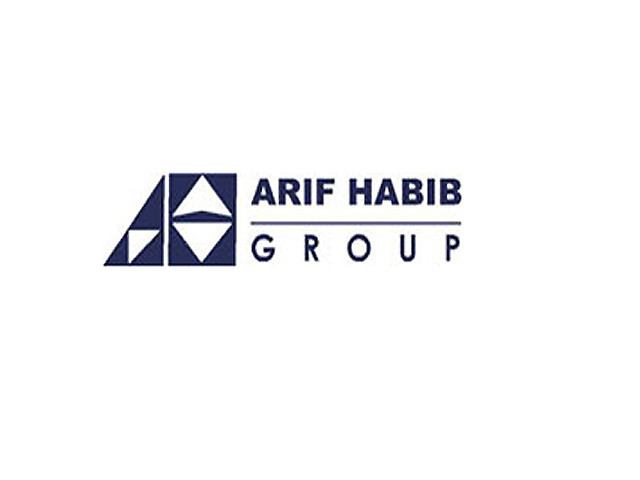A hopeful mogul: Arif Habib remains upbeat on corporate Pakistan’s future
Thinks bull run will continue, predicts emergence of new entrepreneurs.

Habib’s optimism is based on his own experience investing in Pakistan.
These new entrepreneurs will be helped by the government’s newfound will to privatize: “They’re planning on raising $1.5 million, so yes, there is a real dedication to offer companies up to international and domestic investors.” According to Habib, “The government is not only increasing their shareholding but also investing more in state owned companies. So these governments owned companies are doing really well, and that is what is going to attract more investors.”

In fact he goes on to say: “By the end of the calendar year I think the market will reach the 25,000 point level.” [KSE is currently above the 23,000 point level].
Habib also sees potential in recently troubled areas. In reply to the question which sectors were expected to show the most growth, Habib highlighted the industrial sector, affected by the energy crisis, and fertilisers, affected by the gas shortage. The reasoning? “There is lot of scope in industrial sector because of the energy shortage, because that means that some of the units are functioning at less than their full capacity, and are underutilising electricity. It all depends on whether the government can come up with some suitable formula to provide [electricity] to the industrial sector.”

Habib also sees remittances from abroad as untapped potential. “Pakistanis send $14 billion annual in remittances, but they also send another $6 billion through the havala process. So non-resident Pakistanis send $20 billion annually. Obviously those people aren’t sending all of their income, so if 50% is being saved, then that gives you annual earnings of $40 billion.” If Pakistan can give those non resident Pakistanis confidence, according to Habib, not only will Pakistanis abroad invest back home, but they will also influence foreigners to invest too. Already investors from the Middle East, UK, China and Japan are looking into Pakistan, as per Habib.
Habib’s optimism is based on his own experience investing in Pakistan. When asked about whether wealth is leaving the country though offshore accounts, he seemed genuinely surprised. “Profitability margin in Pakistan in much better than in other places. The stock market has an excellent annual return for 36% on average and the rupee has depreciated by 6%. This makes Pakistan very, very attractive for investors.” As for the money leaving: “It’s only money earned through bribes to buy real estate in Dubai or Malaysia” – an unfortunate inconvenience, but nothing more. The formal sector so far seems interested in staying put.

The current bullish run continuing still has its share of issues. Inflation is one. “The government is set to increase electricity prices that will definitely add to inflation. This will put pressure on prime lending rates in Pakistan”, says Habib. The fiscal deficit is another: “For me that is a really worrying sector. It increases the liability of government and is crowding out the private sector by taking loans from the banking sector.”
And while Habib may highlight fertilizers as an emerging sector, his own Fatima Fertilizers has been plagued by problems. Fatima Fertilizer is the only maker of calcium ammonium nitrate (CAN) in Pakistan, a substance that the US thinks is used to make explosives. While refusing to comment on whether rumours that the formula of CAN is being changed are true, Habib did point out that the packaging has been changed to dissuade sales in the northern areas. As for his personal feelings about a Pakistani company being pressured by the US like this: “I would like to clarify that that is not the case and we are cooperating with both the government and international companies.”
Habib also defended claims that the stock market would not have done so well if sources of funds had been questioned. In 2012 the government came out with a scheme that investors in the capital market for 90 days between March and June would not be asked sources of funds. This apparently led to the current boom the KSE is experiencing. Yet according to Habib, only 1% of all transactions actually availed this scheme. “See, those with funds were already investing. Investment was only low for those smaller people creating a hue and cry so the government gave them this scheme...really, it was just to appease some sort of psychological issue.”

Finally, looking ahead, which three companies would Habib buy right now if he could? “Sui Southern Gas, Pakistan Petroleum and Fauji Fertilizers. The financial results of Sui have improved as their unaccounted for gas (UFC) number has gone down. Pakistan Petroleum reserves are expected to do much better because of the circular debt problem being resolved. And Fauji has been making good profits and has always had a sound record.
Published in The Express Tribune, August 5th, 2013.
Like Business on Facebook, follow @TribuneBiz on Twitter to stay informed and join in the conversation.



















COMMENTS
Comments are moderated and generally will be posted if they are on-topic and not abusive.
For more information, please see our Comments FAQ